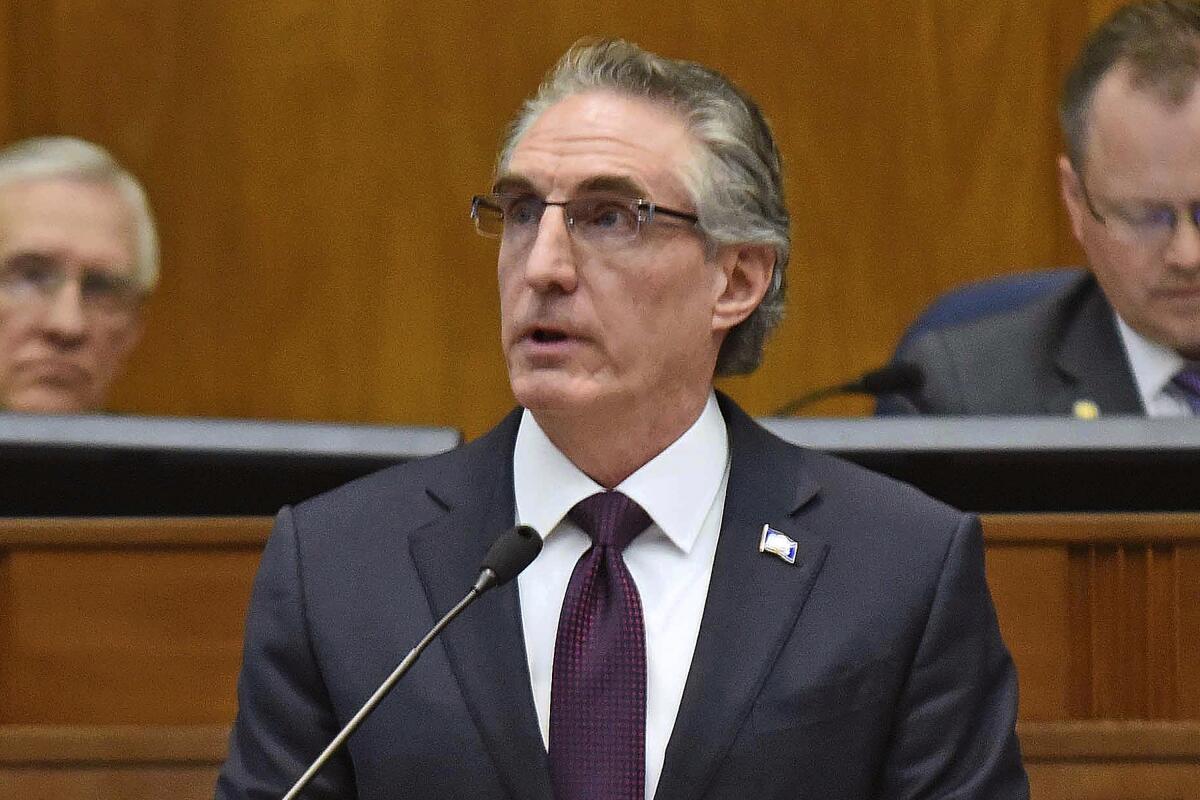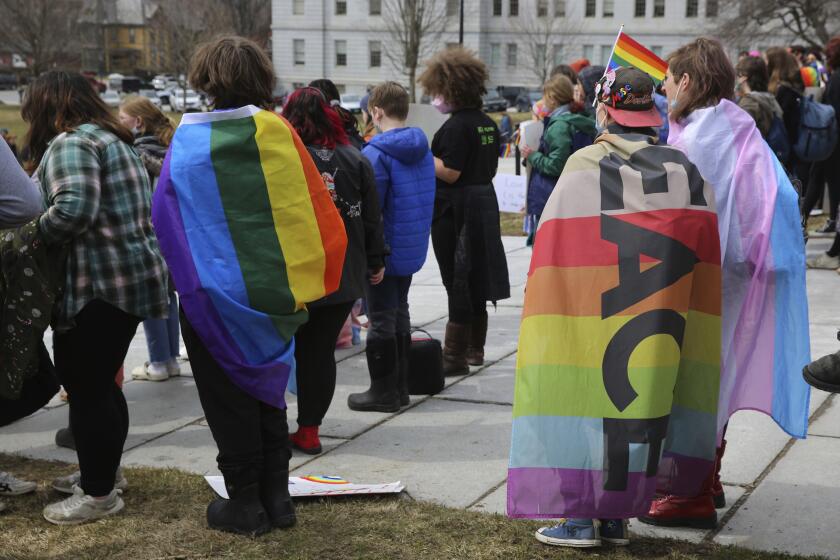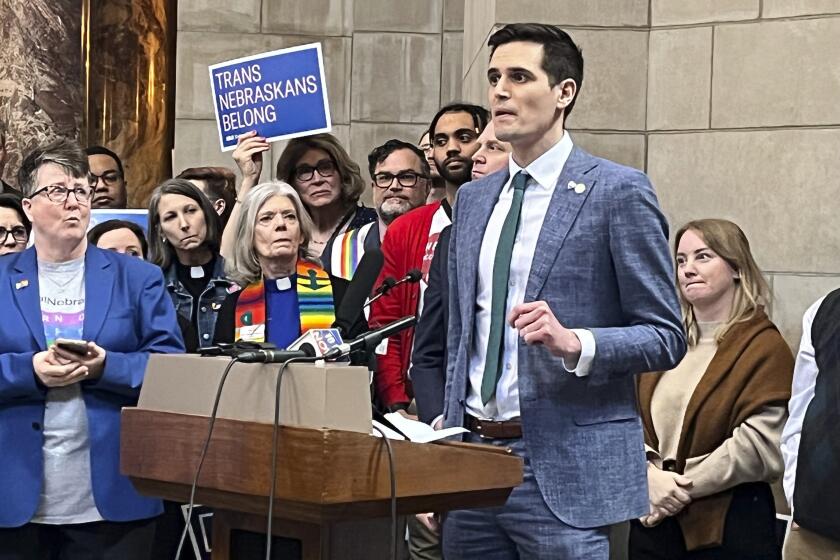New North Dakota law limits bathroom access for transgender people

- Share via
Transgender children and adults in North Dakota won’t be allowed to use bathrooms, locker rooms or showers that match the gender they identify with in places like college dormitories and jails under a new law signed by Republican Gov. Doug Burgum.
Burgum’s office announced Wednesday that he had signed the bill the previous day. The measure passed the state House and Senate with veto-proof majorities.
Dorms and living facilities controlled by the state board of higher education are affected, as well as correctional facilities for youths and adults. Restrooms and shower rooms will be designated for use exclusively by males or exclusively by females. Transgender or gender-nonconforming people will need to get approval from a staff member to use the restroom or shower room of their choice.
The governor’s office declined to comment on the bill Wednesday.
On Transgender Day of Visibility, people across the country gather for events to build support for transgender rights.
The American Civil Liberties Union has said that more than 450 bills attacking the rights of transgender people have been introduced in state legislatures so far this year.
Rep. Eric Murphy was one of three Republicans who defied their party and voted against the North Dakota bill when it was in the House.
“I don’t try to be polarizing. I just don’t think there was a need for the legislation,” the lawmaker from Grand Forks said in an interview after the new law was announced.
Murphy, a professor of biomedical sciences at the University of North Dakota, said he doesn’t think there needs to be a law to tell school officials how to handle this issue.
A leading transgender health association has lowered its recommended minimum age for gender transition treatment in teens.
Republican Rep. Jeff Hoverson supported the bill. “Why would you not want a men’s bathroom to be for men, and a women’s bathroom to be for women?” the Minot representative said Wednesday.
Experts say gender is a spectrum, not a binary structure consisting of only males and females, and it can vary by society and change over time. Sex refers to biological characteristics, such as chromosomes, hormones and reproductive anatomy, which can also vary or change in understanding over time, or be medically and legally altered.
Last week, the governor signed a bill that restricts transgender healthcare in the state, immediately making it a crime to give gender-affirming care to people younger than 18.
Erica Anderson took more than half a century to come out as a woman. Now she works with teens in a rush to transition.
That measure also received veto-proof support from GOP lawmakers — although some Republicans did vote against it, alongside all Democrats.
Earlier this month, Burgum also signed a transgender athlete ban into law after it similarly passed the House and Senate with veto-proof majorities. In 2021, Burgum vetoed a bill that would have imposed a transgender athlete ban at that time, but state lawmakers did not have enough votes back then to override his veto.
Republican lawmakers across the country are also banning gender-affirming care for minors. Restrictions have gone into effect in eight states this year — including conservative Utah and South Dakota — and are slated to in at least nine more by next year.
Lawmakers in several conservative states are continuing to target transgender children with bills that prohibit gender affirming care for young people.
More to Read
Sign up for Essential California
The most important California stories and recommendations in your inbox every morning.
You may occasionally receive promotional content from the Los Angeles Times.














